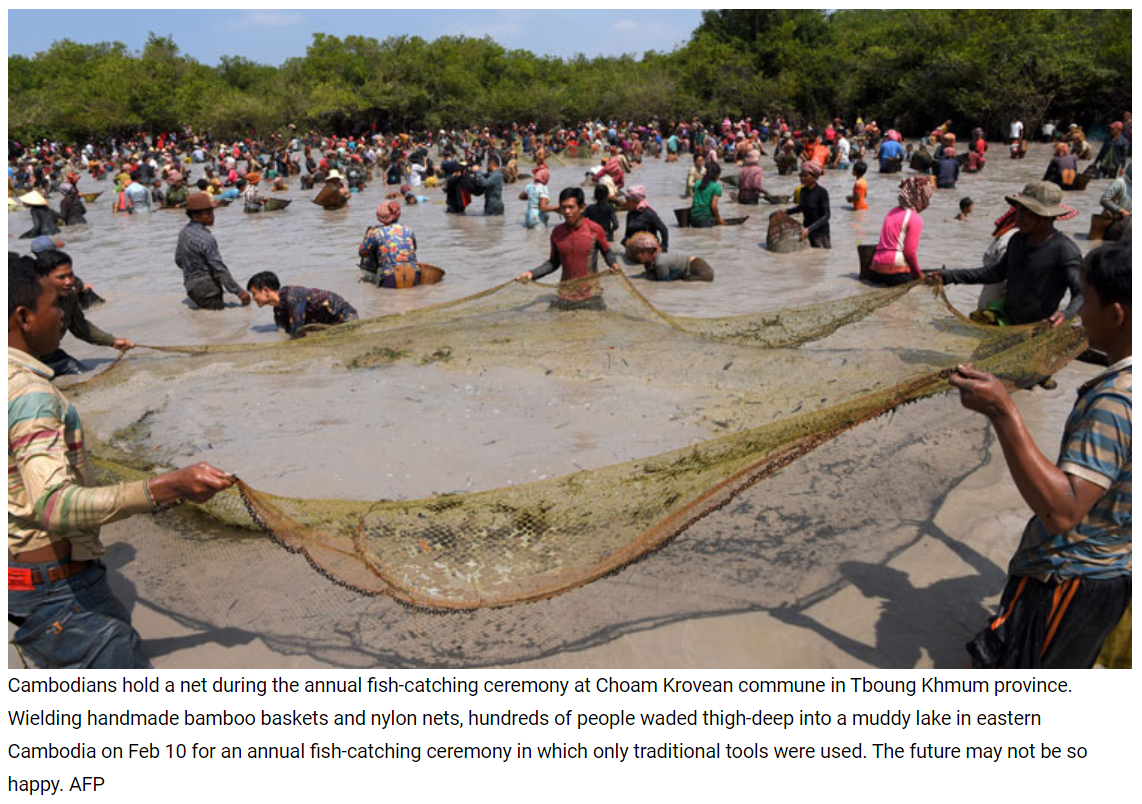Cambodia: Fears of social unrest over virus
Developing countries such as Cambodia are facing more challenges from the global virus crisis, which questions have been raised over social unrest because of the rise of unemployment.
Things cannot be predicted because 130 garment factories have applied for suspension, affecting 100,000 workers, while according to the Garment Manufacters Associatin of Cambodia (GMAC), approximately 60 percent of factories have been severely affected by cancelled orders of ready-made garment exports, because of the COVID-19 pandemic.
The pandemic is helping the country’s economic growth to just more than a predicted 2 percent this year from more than decade strong economic growth of 7 percent annuallly.
The World Bank and the Asian Development Bank (ADB) predict Cambodia economic growth at 2.5 percent and 2.3 percent respectively this year while the International Monetary Fund (IMF) forecasts minus 1.7 percent.
Looking at 100,000 affected factory workers alone, the Kingdom’s economy generated by them is estimate to lose millions of dollars a month as millions of household will be severely affected.
Calculated by the average $200 earned by a worker a month, the numbers of 100,000 affected would lose about $20 million a month in total, while the government is expected to lose hundreds of millions of dollars in subsidies to the unemployed.
These sums do not include the loss of garments and textiles exported from cancelled orders of ready-made garment to the EU and US markets.
Questions are now being raised about what will happen when the unemployment rate rises.
Van David, a senior associate at PLATFORM IMPACT, a public-private partnership, said there will be social issues.
“The problem is when people are out of a job and hungry, the crime rate may surge as people resort to robberies and all that unfortunately may create another layer of social unrest,” David said.
David added that because Cambodia possesses a huge informal sector that contributes also substantially to the local economy and which is the most negatively impacted sector by the COVID-19 crisis, the challenge rests upon the government to figure out what measures could be undertaken to reach out to this informal segment of society.
“Let us be reminded that for every formal sector garment factory workers [800,000 of them approximately], about five to six informal sector workers people survive from being roadside food sellers to the moto or remorque drivers ferrying workers to manicure outlets for ladies and waiters/waitresses in small local food and beverage outlets etc,” he said.
Cambodian government spokesman Phay Siphan played down concerns, saying that the government has enough ability to solve any issues.
“We are careful respond to any crisis. They don’t understand the government’s job. They are less aware of the issues and they make assumptions and the government will not allow problems to happen because we are trying hard to stop them,” he said
Phay Siphan said the government already has plans in place to respond to any crisis. “We have The Ministry of Economy and Finance that has already prepared a budget package to solve any issues phase by phase. The government has reduced 50 percent of expenditure on infrastructure projects investment as one of the solutions,” he said, adding that the ministry of Labour and Vocational Training is also promoting new job opportunities for people.
“We have newly registered investment projects which have been approved by the CDC [Cambodian Development Council]. It is not only about garment factories. It is about different products for different markets,” he said.
To mitigate the economic shock of the pandemic, the government has announced a $2 billion reserve budget to help the Kingdom’s economic pillars, including agriculture and banking, and also helping unemployment in the garment and tourism sectors.
The government has provided a $40 incentive per month while also requesting factory owners to pay $30 a month. This will mean suspended workers can continue to earn $70 per month over the next six months. The $40 incentive per month also provides for those affected in the tourism sector as well.
According to the government’s figures, the Kingdom’s total labour force is 10 million. Of this, 3.69 million is what is termed a local labour force (1.5million working in informal businesses and 2.2 million working in registered businesses), 4 million in agriculture, 500,000 civil servants and 1.28 million migrant workers.
COVID-19 has affected a total of 630,000 people in the tourism sector and some 30,000 of them are now unemployed, according to data from the Cambodia Association of Travel Agents
Around 500,000 workers out of the approximate 750,000 workforce in the garment sector have been affeccted by these cancellations.
The President of the Cambodian Labour Confederation (CLC), Ath Thon said that with 100,000 workers affected by job losses the impact is huge.
“Workers earn on average $200 to $250 per month with a $70 subsidy provided by the government. They normally spend about $90 per month on food, water, electricity and rental fees,” he said.
Ngeth Chou, a senior consultant for Emerging Markets Consulting, said that it is up to the government to ease the financial needs of affected people and businesses.
He said that beside garment workers, 90,000 workers out of the 300,000 workforce in the construction sector have been affected. He added about 50,000 Cambodian migrant workers returned from Thailand and contributed largely to the financial difficulties.
Source: https://www.khmertimeskh.com/50719660/fears-of-social-unrest-over-virus/


 Thailand
Thailand




